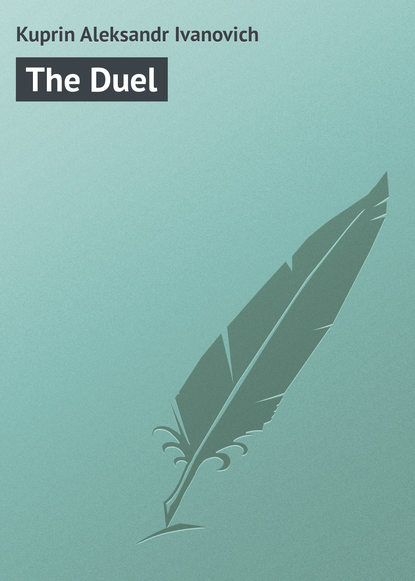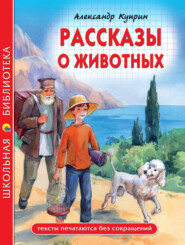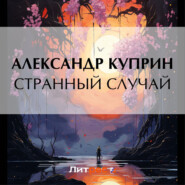По всем вопросам обращайтесь на: info@litportal.ru
(©) 2003-2024.
✖
The Duel
Настройки чтения
Размер шрифта
Высота строк
Поля
Romashov often talked to Hainán about his gods – about whom the Circassian had only dim and meagre ideas; but it amused him greatly to make Hainán tell the story of how he took the oath of allegiance to the Tsar and Russia – a story well worth hearing now and then. At that time the oath of allegiance was, for the Orthodox, administered by a priest of the Greek Church; for Catholics, by the ksends[3 - Roman Catholic priests are so called in Lithuania and Poland.]; for Protestants, when a Lutheran pastor was not available, by Staff-Captain Ditz; and for Mohammedans, by Lieutenant Biek-Agamalov. For Hainán and two of his fellow-countrymen a particular and highly original form had been authorized. The three soldiers were ordered to march in turn up to the Adjutant of the regiment, and from the point of the sabre held towards them they were required to bite off, with deep reverence, a piece of bread that had been dipped in salt. Under no circumstances was the bread to be touched by their hands. The symbolism of this curious ceremony was as follows: When the Circassian had eaten his lord’s – the Tsar’s – bread and salt in this peculiar way he was ruthlessly condemned to die by the sword if he ever failed in loyalty and obedience. Hainán was evidently very proud of having thus taken his oath of allegiance to the Tsar, and he never got tired of relating the circumstance; but as every time he told his story he adorned it with fresh inventions and absurdities, it became at last a veritable Münchausen affair, which was always received with Homeric laughter by Romashov and his guests.
Hainán now thought that his master would start his usual questions about gods and Adjutants, and stood ready to begin with a cunning smile on his face, when Romashov said —
“That will do; you can go.”
“Shall I not lay out your Honour’s new uniform?” asked the ever-attentive Hainán.
Romashov was silent and pondered. First he would say “Yes,” then “No,” and again “Yes.” At last, after a long, deep sigh, uttered in the descending scale, he replied in a tone of resignation —
“No, Hainán, never mind about that – get the samovar ready and then run off to the mess for my supper.”
“I will stay away to-day,” whispered he to himself. “It doesn’t do to bore people to death by calling on them like that every day. And, besides, it is plain I am not a man people long for.”
His resolution to stay at home that evening seemed fixed enough, and yet an inner voice told him that even to-day, as on most other days during the past three months, he would go to the Nikoläievs’. Every time he bade these friends of his good-bye at midnight, he had, with shame and indignation at his own weakness and lack of character, sworn to himself on his honour that he would not pay another call there for two or three weeks. Nay, he had even made up his mind to give up altogether these uncalled-for visits. And all the while he was on his way home, whilst he was undressing, ah! even up to the moment he fell asleep, he believed it would be an easy matter for him to keep his resolution. The night went by, the morning dawned, and the day dragged on slowly and unwillingly, evening came, and once more an irresistible force drew him to this handsome and elegant abode, with its warm, well-lighted, comfortable rooms, where peace, harmony, cheerful and confidential conversation, and, above all, the delightful enchantment of feminine beauty awaited him.
Romashov sat on the edge of his bed. It was already dark, but he could, nevertheless, easily discern the various objects in his room. Oh, how he loathed day by day his mean, gloomy dwelling, with its trumpery, tasteless furniture! His lamp, with its ugly shade that resembled a night-cap, on the inconvenient, rickety writing-table, looked haughtily down on the nerve-torturing alarm-clock and the dirty, vulgar inkstand that had the shape of a badly modelled pug-dog. Over his head something intended to represent a wall decoration – a piece of felt on which had been embroidered a terrible tiger and a still more terrible Arab riding on horseback, armed with a spear. In one corner a tumbledown bookstand, in the other the fantastic silhouette of a hideous violoncello case. Over the only window the room could boast a curtain of plaited straw rolled up into a tube. Behind the door a clothes-stand concealed by a sheet that had been white in prehistoric times. Every unmarried subaltern officer had the same articles about him, with the exception of the violoncello which Romashov had borrowed from the band attached to the regiment – in which it was completely unnecessary – with the intention of developing on it his musical talent. But as soon as he had tried in vain to teach himself the C major scale, he tired of the thing altogether, and the ‘cello had now stood for more than a year, dusty and forgotten, in its dark corner.
More than a year ago Romashov, who had just left the military college, had taken both pride and joy in furnishing his modest lodgings. To have a room of his own, his own things, to choose and buy household furniture according to his own liking, to arrange everything according to his own consummate taste – all that highly flattered the amour propre of that young man of two-and-twenty. It seemed only yesterday that he sat on the school form, or marched in rank and file with his comrades off to the general mess-room to eat, at the word of command, his frugal breakfast. To-day he was his own master. And how many hopes and plans sprang into his brain in the course of those never-to-be-forgotten days when he furnished and “adorned” his new home! What a severe programme he composed for his future! The first two years were to be devoted chiefly to a thorough study of classical literature, French and German, and also music. After that, a serious preparation for entering the Staff College was to follow. It was necessary to study sociology and society life, and to be abreast of modern science and literature. Romashov therefore felt himself bound at least to subscribe to a newspaper and to take in a popular monthly magazine. The bookstand was adorned with Wundt’s Psychology, Lewes’s Physiology, and Smiles’s Self-Help, etc., etc.
But for nine long months have the books lain undisturbed on their shelves, forgotten by Hainán, whose business it is to dust them. Heaps of newspapers, not even stripped of their wrappers, lie cast in a pile beneath the writing-table, and the æsthetic magazine to which we just referred has ceased to reach Romashov on account of repeated “irregularities” with regard to the half-yearly payment. Sub-Lieutenant Romashov drinks a good deal of vodka at mess; he has a tedious and loathsome liaison with a married woman belonging to the regiment, whose consumptive and jealous husband he deceives in strict accordance with all the rules of art; he plays schtoss,[4 - Schtoss is a sort of Russian hazard.] and more and more frequently comes into unpleasant collisions both in the service and also in the circles of his friends and acquaintances.
“Pardon me, your Honour,” shouted his servant, entering the room noisily. Then he added in a friendly, simple, good-natured tone: “I forgot to mention that a letter has come from Mrs. Peterson. The orderly who brought it is waiting for an answer.”
Romashov frowned, took the letter, tore open a long, slender, rose-coloured envelope, in a corner of which fluttered a dove with a letter in its beak.
“Light the lamp, Hainán,” said he to his servant.
MY DEAR DARLING IRRESISTIBLE LITTLE GEORGI (read Romashov in the sloping, crooked lines he knew so well), – For a whole week you have not been to see me, and yesterday I was so miserable without you that I lay and wept the whole night. Remember that if you fool me or deceive me I shall not survive it. One single drop of poison and I shall be freed from my tortures for ever; but, as for you, conscience shall gnaw you for ever and ever. You must – must come to me to-night at half-past seven. He is not at home, he is somewhere – on tactical duty or whatever it is called. Do come! I kiss you a thousand thousand times.
Yours always,
Raisa.
P.S. —
Have you forgotten the river fast rushing,
Under the willow-boughs wending its way,
Kisses you gave me, dear, burning and crushing,
When in your strong arms I tremblingly lay?
P.SS. – You must absolutely attend the soirée next Saturday at the officers’ mess. I will give you the third quadrille. You understand.
A long way down on the fourth page lay written —
I have kissed here.
This delightful epistle wafted the familiar perfume of Persian lilac, and drops of that essence had, here and there, left yellow stains behind them on the letter, in which the characters had run apart in different directions. This stale scent, combined with the tasteless, absurdly sentimental tone throughout this letter from a little, immoral, red-haired woman, excited in Romashov an intolerable feeling of disgust. With a sort of grim delight he first tore the letter into two parts, laid them carefully together, tore them up again, laid the bits of paper once more together, and tore them again into little bits till his fingers got numb, and then, with clenched teeth and a broad, cynical grin, threw the fragments under his writing-table. At the same time, according to his old habit, he had time to think of himself in the third person —
“And he burst out into a bitter, contemptuous laugh.”
A moment later he realized that he would have to go that evening to the Nikoläievs’. “But this is the last time.” After he had tried to deceive himself by these words, he felt for once happy and calm.
“Hainán, my clothes.”
He made his toilet hastily and impatiently, put on his elegant new tunic, and sprinkled a few drops of eau-de-Cologne on a clean handkerchief; but when he was dressed, and ready to go, he was stopped suddenly by Hainán.
“Your Honour,” said the Circassian, in an unusually meek and supplicating tone, as he began to execute a most curious sort of dance before his master. Whilst he was performing a kind of “march on the spot” he lifted his knees right up, one after the other, rocking his shoulders, nodding his head, and making a series of convulsive movements in the air with his arms and fingers. Hainán was in the habit of giving vent to his excited feelings by curious gestures of that sort.
“What do you want now?”
“Your Honour,” stammered Hainán, “I want to ask you something; please give me the white gentleman.”
“The white gentleman? What white gentleman?”
“The one you ordered me to throw away – the one standing in that corner.”
Hainán pointed with his fingers to the stove-corner, where a bust of Pushkin was standing on the floor. This bust, which Romashov had obtained from a wandering pedlar, really did not represent the famous poet, but merely reproduced the forbidding features of an old Jew broker. Badly modelled, so covered with dust and fly dirt as to be unrecognizable, the stone image aroused Romashov’s aversion to such an extent that he had at last made up his mind to order Hainán to throw it into the yard.
“What do you want with it?” asked Romashov, laughing. “But take it by all means, take it, I am only too pleased. I don’t want it, only I should like to know what you are going to do with it.”
Hainán smiled and changed from one foot to the other.
“Well, take him, then; I wish you joy of it. By the way, do you know who it is?”
Hainán smiled in an embarrassed way, and infused still more energy into his caperings.
“No – don’t know.” Hainán rubbed his lips with his coat sleeve.
“So you don’t know. Well, listen. This is Pushkin – Alexander Sergievich Pushkin. Did you understand me? Now repeat – ‘Alexander Sergievich – ’”
“Besiäev,” repeated Hainán in a determined tone.
“Besiäev? Well, call him Besiäev if you like. Now I am off. Should any message come from Mr. and Mrs. Peterson, say I’m not at home, and you don’t know where I have gone. Do you understand? But if any one wants me in the way of business connected with the regiment, run down at once for me at Lieutenant Nikoläiev’s. You may fetch my supper from the mess and eat it yourself. Good-bye, old fellow.”
Romashov gave his servant a friendly smack on his shoulder, which was answered by a broad, happy, familiar smile.
IV
WHEN Romashov reached the yard it was quite dark. He stumbled like a blind man into the street, his huge goloshes sank deep into the thick, stiff mud, and every step he took was accompanied by a smacking noise. Now and again one golosh stuck so fast in the mud of the road that it remained there, and he had all the difficulty in the world, whilst balancing himself wildly on his other foot, to recover his treasure.
The little town seemed to him to be absolutely dead. Not a sound was heard, even the dogs were silent. Here and there a gleam of light streamed from the small, low-pitched, white house, against which the window-sills sharply depicted their shapes in the yellowish-brown mire. From the wet and sticky palings along which Romashov slowly worked his way, from the raw, moist bark of the poplars, from the dirty road itself, there arose a strong, refreshing scent of spring, which aroused a certain unconscious sense of joy and comfort. Nay, even with the tormenting gale which swept violently through the streets seemed mingled a youthful, reawakened desire of life, and the gusts of wind chased one another like boisterous and sportive children in a “merry-go-round.”
When Romashov reached the house where the Nikoläievs dwelt, he stopped, despondent and perplexed. The close, cinnamon-coloured curtains were let down, but behind them one could, nevertheless, distinguish the clear, even glow of a lamp. On one side the curtain curved inwards and formed a long, small chink against the window-sill. Romashov pressed his face cautiously against the window, and hardly dared to breathe for fear of betraying his presence.
He could distinguish Alexandra Petrovna’s head and shoulders. She was sitting in a stooping attitude on that green rep divan that he knew so well. From her bowed head and slight movements he concluded that she was occupied with some needlework. Suddenly she straightened herself up, raised her head, and drew a long breath. Her lips moved.
“What is she saying?” thought Romashov. “And look! now she’s smiling. How strange to see through a window a person talking, and not to be able to catch a word of what she says.”
The smile, however, suddenly disappeared from Alexandra Petrovna’s face; her forehead puckered, and her lips moved rapidly and vehemently. Directly afterwards she smiled again, but wickedly and maliciously, and with her head made a slow gesture of disapproval.

















